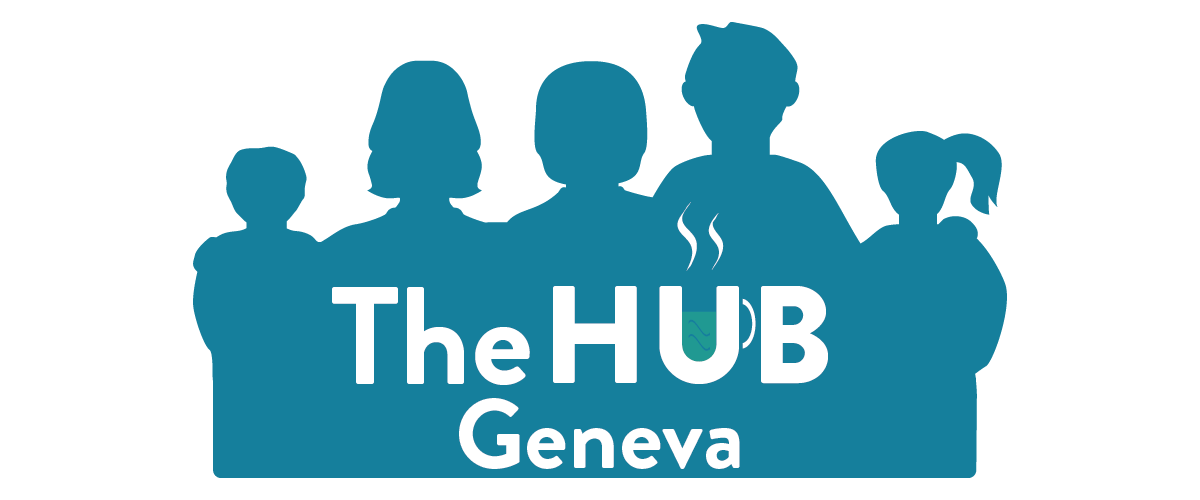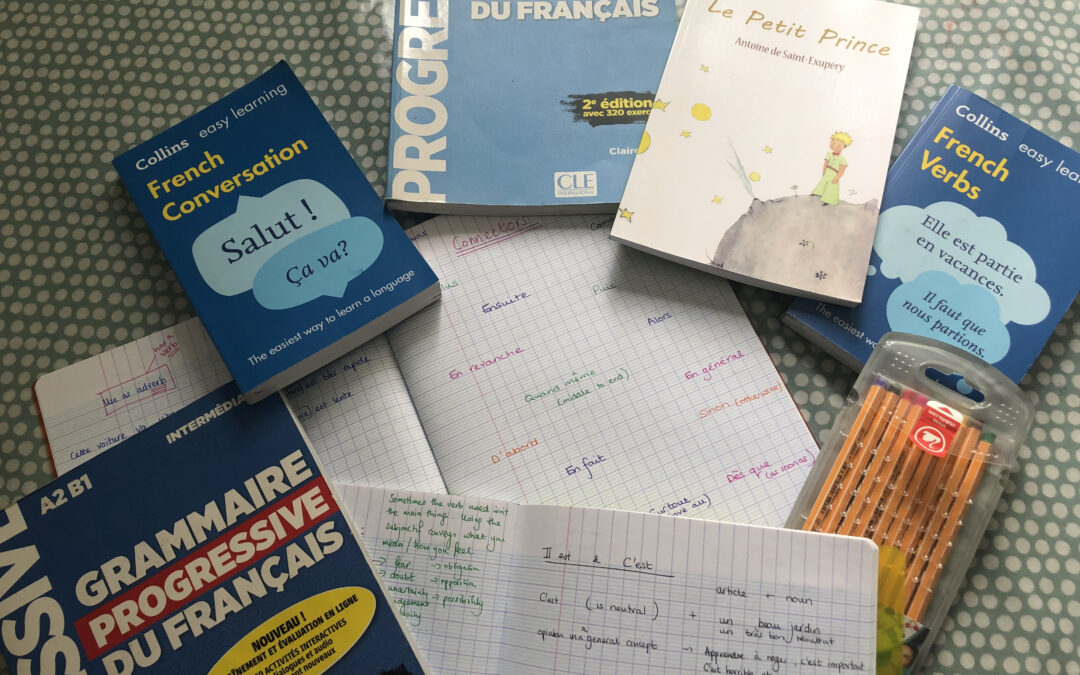“Speaking French, that’ll be easy to crack”. That’s what I thought when we started to plan our new life in Geneva. “A bit of hard work, a few embarrassing episodes but then it’ll start to slot into place.” I couldn’t envisage an alternative. And anyway I was sure that most people would speak English, so if my French wasn’t good enough, surely we’d just swap to English. I’d make the usual British apologies for being useless with languages, we’d laugh and then get on with things.
How wrong can you be? Three years later I can testify that all my preconceptions were way off base – learning a second language is incredibly, incredibly difficult. In true reality TV style I have been on a journey with French, one that has involved tears, humiliation, anger and seemingly never-ending frustration, but ultimately progress, joy and acceptance. Acceptance that this journey will be one that continues, probably until the day we move elsewhere, and that is ok.
What has been hardest to accept along the way? Probably that my initial goal of a reasonably high degree of fluency is unattainable. And that’s (finally) ok with me. I can hold a somewhat stilted conversation on a range of subjects, but more importantly I can understand (mostly) what people are saying to me. I can work with this, and improve yet more.
The part that has been harder, is answering the well-meaning friends back home who asked ‘so are you fluent yet?, after six months and keep asking to this day. I was embarrassed to start with – why wasn’t I better? How long would it take me? Did I just need to put in more effort or was my brain just not up to it? But I was also angry that they didn’t understand how difficult learning French is – all the grammar, the tongue-twisting pronunciation, the relentless speed at which everybody speaks – and all this against a background of figuring out how to function in a new community and culture.
The option of speaking English just didn’t seem to work in practical terms, nor emotionally. I just wasn’t prepared to be somebody who avoided French as much as possible; part of our decision to move had been to expose ourselves and our children to differences – in culture, in language, in everything really. But that just piled on the pressure to improve.
.And also where were all these people that could speak English? Those that could effortlessly switch from their mother tongue to mine when I needed them? All my daily interactions – the supermarket, the post office, the neverending stream of people that turned up at the house – to fix something, to sell something, to ask for donations, spoke FRENCH, FRENCH, FRENCH!
Parlez-vous anglais? My basic first question never seemed to move seamlessly forward into a language I could understand. Instead, it was almost always met with the hard stop, nowhere to go response of……“Non”. Followed by an epic silence, completely engulfing me and daring me to see how long I can hold out for before I realise that the only way forward is in French. What is the word boiler again? Why didn’t my French lesson cover the vocabulary to use when the oven cuts out when it heats up to temperature? Did I just tell them I’m only here until 10am or from 10am?
I suppose this was the point that I could have chosen to give up, resigned myself to hand gestures and exaggerated facial expressions to convey important points and hoped for the best (although how this might have worked whilst wearing a mask I really don’t know). But I opted for the harder road of persevering through the embarrassment.
Because learning French has been genuinely embarrassing, repeatedly and unrelentingly so. Embarrassment has clung to me steadfast, like a faithful friend; with my cheeks flushing brightly on cue to really highlight each moment to all concerned.
I remember:
- discussions at the post office about parcels that were meant to be “à la poste’, but had inexplicably been returned
- trying to figure out how to ask the ski/swim/judo coach how my son had got on, could he move to the next level, was he actually listening etc. etc. but never ever having any of the words and definitely never in the right order
- sipping espresso at the Patinoire (I hate all coffee with a passion) because I couldn’t figure out how to politely explain that, in my previous simple four word sentence, I’d actually asked for tea.
- All the times my husband asked me – ‘so what did they say’ when we left a conversation and I had to admit, that despite frequent nods to the contrary, I hadn’t understood a word
- The takeaway pizzas ordered bravely by phone (my ongoing nemesis) that wouldn’t be ready for another 45 minutes, as had apparently already been explained to me when I called
- Using the standard response of “oui’ for absolutely everything, until it became plain from the look on the other person’s face that that ‘oui’ simply could not be the answer to the actual question they had asked (and I had clearly not understood)
- Repeated tears in French classes – the first mean teacher, the conversation class way above my level that I stuck with for the full hour whilst wanting to sink through my chair into the floor, the day that it just all inexplicably seemed too much and my frustration came out in slow sobs.
But I also can reflect on successes which burn proudly in my heart:
- Trips to the garage to get my tyres changed, puncture repaired, new battery fitted – the wonderful staff of Euromaster Versoix have been very patient
- Returning clothing rejected by my children to H&M with ease
- Arranging for my steam mop to be returned under warranty at Carrefour the day before the border shut last year
- Being able to answer when someone asks me something in the street – directions to the beach anyone?
- Talking with my Swiss neighbour (simply) in French rather than English
- Basic phone calls to make appointments for the doctor, dentist, optamalogue etc.
- Being able to give my name, letter by letter using French pronunciation – such a small thing but so, so useful. Sticking to the english pronunciation takes 3 times as long and usually ends up with an innovative spelling
- Being able to hear others conversations – strangely knowing that other people aren’t talking about you is massively reassuring
- Passing my DELF B1 with a really good mark
What has worked for me? Probably my biggest improvement in speaking French came when I finally allowed myself to push through the mistakes, and just talk. In all fairness, this wasn’t exactly a revelation. I had been given this advice many times. However, at the beginning my head was just too full of all the details of what I was learning, to do anything other than freeze when I realised a mistake. And whilst the pause wasn’t long and my lips did continue to move, somehow all flow had been lost and I was floundering; wondering what on earth I was trying to say even in English.
And whilst trying to get to the point where your brain relaxes and allows you to go for it, what to do until then? Can I suggest that you aim only to persevere? It will bring results. Find a French teacher that you trust – you bear your soul in classes, so you need someone kind. Search for podcasts at your level, make duolingo a daily habit, watch some TV in french with french subtitles (english if you’re just starting out), listen to the radio. Also try talking to others about yours and their experiences – everyone has their embarrassing stories, and hearing someone else’s disastrous tale from the post office or the supermarket is strangely comforting. It is through our connections that we truly belong.
Are you learning French and feeling despondent?
Have you any top tips that have helped you progress?
Do you have a task that you completed in French of which you are proud?
Can you recommend a teacher or a conversation group?


Love this article. I am relieved that I am not the only one feeling like this. It is the second time I am going through learning a new language. The first time it was English 20 years ago. However, as one has no choice than to speak English in the UK the process was much faster. What frustrates me about Geneva is that many people switch to English as soon as they hear my strange accent. They either want to improve their English instead of giving me an opportunity to learn French, or don’t have the patience to listen to my terrible french or want to be helpful. So at the end I end up teaching them English rather than improving my French. At first I feel relieved that they speak English, but later on I feel very upset with myself that I have missed an opportunity and have to pay a teacher online to speak French with me. But one thing is for sure, if we keep going, we will get there. I never thought that I will be able to speak English fluently, but with enough practice I got there. It is not an easy journey, but it will be worth it.
Forgot to mention Philippine, an excellent, online French teacher. She is very polite, patient and charges only 15 Euro per 55 minutes. Her number is +33 6 04 53 67 70. Can be contacted on WhatsApp.
Well done for persevering and finding a teacher that supports you. It makes all the difference doesn’t it!
I have Suzanne at Languages for Fun in Coppet and she has been brilliant. Her English is amazing which at the beginning was really helpful as she could explain things really clearly for me. Also she is never fazed at all – she has taught all sorts of people refugees, children, adults – so she is super flexible and happy to change the lesson half way through if we show extra interest in anything or have additional questions.